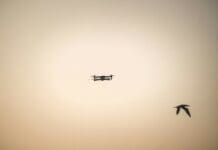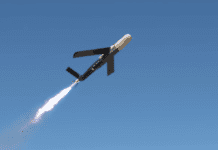This post is also available in:
 עברית (Hebrew)
עברית (Hebrew)
As one of the world leaders in the field of drones, Israel has been responsible for more than 60% of the world export since 1985, according to theguardian.com. Israel’s military background and human resources turned the local developers into ground-breaking technology leaders long before these systems got to the headlines.
The number of local companies developing technologies in the drone field, not including governmental and public companies, reached about 50 at the end of 2017, mostly privately-funded.
Iren Reznikov, an investment manager in the American YL fund that invests in early-stage technological developments, told forbes.co.il that the drone field “has been developing fast in Israel, mainly during the last three years.” “This field incorporates manpower with very qualitative know-how in the world of flight and software.”
How did Israel become a leader in this developing market? First, as many other technologies, the unmanned aerial vehicle technology started off at the military and security fields. The exposure to the impressing technological developments and the resulting applications has brought to the market many entrepreneurs and engineers who chose to continue and develop the technology and find additional uses in for the civilian market.
Second, as forbes.co.il evaluates, Israel as a startup nation is always a pioneer in adopting new technologies and using them to develop out-of-the-box solutions. Several years ago, when the world drone market started to gain momentum and the technology became accessible and available, there was a growing need in finding more uses and applications. The Israeli entrepreneurs and engineers identified this need and grabbed the opportunity. The Israeli ecosystem reacted rapidly with various products.
The Israeli drone market includes four main fields: Software and components, anti-drone and cyber, autonomous platforms and suppliers. Among the companies, for example, is Aerodrome, that brings drone technology to the agriculture realm, enabling the screening of wide fields through drones equipped with sensors. These vehicles offer high availability, with a deployment time of fewer than 40 minutes, an advantage over helicopters. The entrepreneur was inspired by his military experience. He said “we suddenly realized the UAVs and drones can contribute immensely also in the civilian world”.
Edgybees started to develop an AR-based game for a drone race and took it to the world of operation targets – first response of rescue teams on emergency and situational awareness through drones. Another company, Siteaware, develops drones for securing construction sites.
In the security field, Percepto, for example, develops autonomous drones with computer vision and artificial intelligence for various missions today operated by human teams. Its drones can independently screen a certain perimeter, such as along a security fence. If the drone detects an anomaly, it can immediately update the control center and transmit from above the occurrences on the scene. Or, if a ground sensor detects an anomaly (fence touched), the drone can “receive” automatically the location data, reach the scene in a very short time and survey the area.
Several companies in Israel develop counter-drone solutions, especially against potential drone-based terrorist attempts. One of them is Convexum, that supplies solutions for detection and monitoring of hostile drones by gaining control and making them land without damage.
The steep increase in the number of drones in Israel poses a complex regulatory challenge, as the state has to supply a rapid response to the developing technology. “This market is accelerated by regulation,” said Reznikov. “One can notice the blooming of new companies right after a certain legislation is published. Security leads regulation. Investors and developers alike know well that the minute the regulation succeeds in catching up with security, the sky is the limit.”
The purpose of regulation is public security, this is the reason why you can’t fly drones near strategic installations such as airports or defense infrastructure. Regulation also does not allow operating autonomous drones beyond human operator’s visual line of sight (BVLOS). A special exception to this regulation was given in March 2017. In a move that received global coverage, Airobotics gained a special authorization to operate automatic drone BVLOS – turning Israel into a world leader in this field.
The regulatory challenge in Israel is under scrutiny, and agencies such as the Civil Aviation Authority and DECA (Defense Export Control Agency) make a lot of effort in the Parliament in attempt to create a more convenient regulation.


























